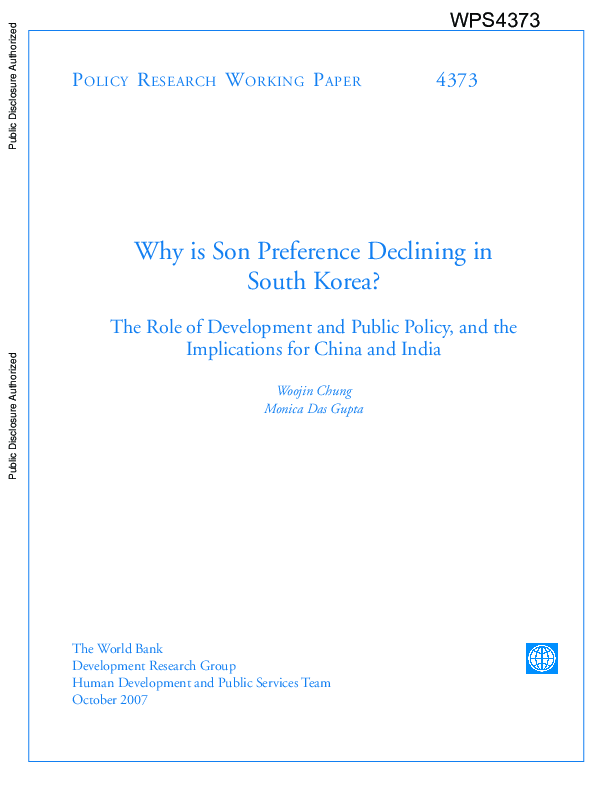
Publications
Why is Son Preference Declining in the Republic of Korea?
Publication date: 04 Dec 2011
Author: UNFPA

Publications
Publication date: 04 Dec 2011
Author: UNFPA
For years, the Republic of Korea presented the puzzling phenomenon of steeply rising sex ratios at birth despite rapid development, including in women’s education and formal employment. This paper shows that son preference decreased in response to development, but its manifestation continued until the mid-1990s due to improved sex-selection technology. The paper analyzes unusually rich survey data, and finds that the impact of development worked largely through triggering normative changes across the whole society — rather than just through changes in individuals as their socioeconomic circumstances changed. The findings show that nearly three-quarters of the decline in son preference This paper—a product of the Human Development and Public Services unit, Development Research Group—is part of a larger effort in the department to study social institutions and development outcomes. Policy Research Working Papers are also posted on the Web at http://econ.worldbank.org. The corresponding author may be contacted at mdasgupta@ worldbank.org. between 1991 and 2003 is attributable to normative change, and the rest to increases in the proportions of urban and educated people.